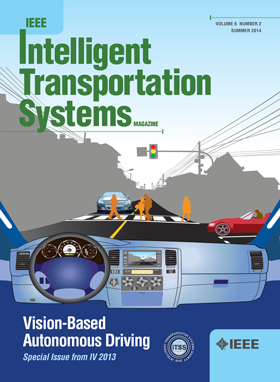Truck Parking Usage Prediction With Decomposed Graph Neural Networks
IF 8.4
1区 工程技术
Q1 ENGINEERING, CIVIL
IEEE Transactions on Intelligent Transportation Systems
Pub Date : 2025-04-15
DOI:10.1109/TITS.2025.3556229
引用次数: 0
Abstract
Truck parking on freight corridors faces the major challenge of insufficient parking spaces. This is exacerbated by the Hour-of-Service (HOS) regulations, which often result in unauthorized parking practices, causing safety concerns. It has been shown that providing accurate parking usage prediction can be a cost-effective solution to reduce unsafe parking practices. In light of this, existing studies have developed various methods to predict the usage of a truck parking site and have demonstrated satisfactory accuracy. However, these studies focused on a single parking site, and few approaches have been proposed to predict the usage of multiple truck parking sites considering spatio-temporal dependencies, due to the lack of data. This paper aims to fill this gap and presents the Regional Temporal Graph Convolutional Network (RegT-GCN) to predict parking usage across the entire state to provide more comprehensive truck parking information. The framework leverages the topological structures of truck parking site locations and historical parking data to predict the occupancy rate considering spatio-temporal dependencies across a state. To achieve this, we introduce a Regional Decomposition approach, which effectively captures the geographical characteristics of the truck parking locations and their spatial correlations. Evaluation results demonstrate that the proposed model outperforms other baseline models, showing the effectiveness of our regional decomposition. The code is available at基于分解图神经网络的货车停车预测
货运通道上的卡车停车面临着停车位不足的主要挑战。服务时间(居屋)规例令情况更趋严重,违例泊车的情况经常出现,引发安全问题。研究表明,提供准确的停车位使用预测是减少不安全停车行为的一种经济有效的解决方案。鉴于此,已有研究开发了各种方法来预测卡车停车场的使用情况,并显示出令人满意的准确性。然而,这些研究主要集中在单个停车点,由于缺乏数据,很少提出考虑时空依赖性的多个卡车停车点使用预测方法。本文旨在填补这一空白,并提出了区域时序图卷积网络(RegT-GCN)来预测整个州的停车使用情况,以提供更全面的卡车停车信息。该框架利用卡车停车场位置的拓扑结构和历史停车数据来预测占用率,并考虑到各州的时空依赖关系。为了实现这一目标,我们引入了一种区域分解方法,该方法有效地捕获了卡车停放位置的地理特征及其空间相关性。评价结果表明,该模型优于其他基准模型,表明了区域分解的有效性。代码可在https://github.com/raynbowy23/RegT-GCN上获得。
本文章由计算机程序翻译,如有差异,请以英文原文为准。
求助全文
约1分钟内获得全文
求助全文
来源期刊

IEEE Transactions on Intelligent Transportation Systems
工程技术-工程:电子与电气
CiteScore
14.80
自引率
12.90%
发文量
1872
审稿时长
7.5 months
期刊介绍:
The theoretical, experimental and operational aspects of electrical and electronics engineering and information technologies as applied to Intelligent Transportation Systems (ITS). Intelligent Transportation Systems are defined as those systems utilizing synergistic technologies and systems engineering concepts to develop and improve transportation systems of all kinds. The scope of this interdisciplinary activity includes the promotion, consolidation and coordination of ITS technical activities among IEEE entities, and providing a focus for cooperative activities, both internally and externally.
 求助内容:
求助内容: 应助结果提醒方式:
应助结果提醒方式:


